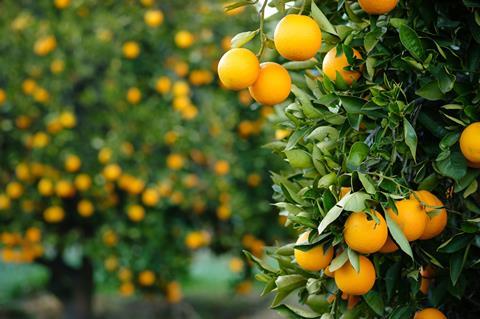CGA president Justin Chadwick said all other avenues to resolve the crisis have been exhausted
The Citrus Growers’ Association of South Africa (CGA) has welcomed the Department of Trade and Competition’s decision to lodge a dispute at the World Trade Organisation over the European Union’s new import rules for citrus from South Africa.

In a statement issued on Thursday, it said the process of seeking a WTO consultation was actioned when it became evident that all other avenues to resolve the dispute had failed.
CGA president Justin Chadwick described the EU’s decision to implement the new regulations requiring cold treatment for oranges heading for the EU as “drastic, and arguably misinformed”.
“Despite numerous objections from several other countries, including European markets that currently import South African oranges, these new regulations were published in the Official Journal of the European Union with an implementation date of 14 July 2022,” he said.
“The fact that EU authorities attempted to enforce these new regulations a mere 23 days after publication made it impossible for South African growers to ensure their compliance, and highlights how unjustified and discriminatory this legislation is, with devastating consequences to our local citrus industry.
“In terms of WTO agreements, members have agreed not to discriminate among imports from different origins, not to impose sanitary and technical barriers to trade that are discriminatory and not based on international standards or on sound scientific evidence.
“It is clear that the EU’s protectionist False Codling Moth import measures against South Africa violate these conditions.”
The CGA said South Africa had identified 21 inconsistencies in the new proposed phytosanitary measures that go against the guidelines of the WTO Agreement.
It noted that the new rules had already impacted an estimated 3.2m cartons of citrus valued at R605m (€38.4m), with reports of hundreds of containers of South African citrus being detained by authorities in the EU on arrival.
“Without immediate political intervention, the threat remains that these consignments will be destroyed by EU authorities,” Chadwick said.
The CGA claimed that the cold treatment prescribed within the new regulations is contrary to scientific evidence, making it an arbitrary and unnecessarily trade restrictive measure in contravention of international requirements for such phytosanitary trade regulations.
“This crisis not only threatens the sustainability and profitability of local growers and the 140,000 jobs the industry sustains locally, but will also result in less and more expensive citrus in European supermarkets,” Chadwick said.
“We simply cannot allow, what was clearly nothing more than a politically motivated move by the Spanish, to decimate the businesses of thousands of local growers and the livelihoods they support, while threatening the destruction of millions of cartons of top-quality fruit by EU authorities.”
The CGA said it would continue to work with all government and industry stakeholders to address this issue with the degree of urgency it requires.



